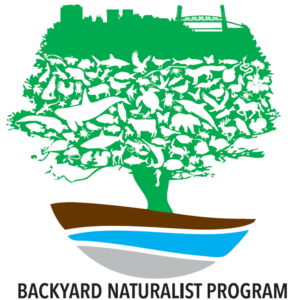The Carolina Backyard Naturalist Program
go.ncsu.edu/readext?789533
en Español / em Português
El inglés es el idioma de control de esta página. En la medida en que haya algún conflicto entre la traducción al inglés y la traducción, el inglés prevalece.
Al hacer clic en el enlace de traducción se activa un servicio de traducción gratuito para convertir la página al español. Al igual que con cualquier traducción por Internet, la conversión no es sensible al contexto y puede que no traduzca el texto en su significado original. NC State Extension no garantiza la exactitud del texto traducido. Por favor, tenga en cuenta que algunas aplicaciones y/o servicios pueden no funcionar como se espera cuando se traducen.
Português
Inglês é o idioma de controle desta página. Na medida que haja algum conflito entre o texto original em Inglês e a tradução, o Inglês prevalece.
Ao clicar no link de tradução, um serviço gratuito de tradução será ativado para converter a página para o Português. Como em qualquer tradução pela internet, a conversão não é sensivel ao contexto e pode não ocorrer a tradução para o significado orginal. O serviço de Extensão da Carolina do Norte (NC State Extension) não garante a exatidão do texto traduzido. Por favor, observe que algumas funções ou serviços podem não funcionar como esperado após a tradução.
English
English is the controlling language of this page. To the extent there is any conflict between the English text and the translation, English controls.
Clicking on the translation link activates a free translation service to convert the page to Spanish. As with any Internet translation, the conversion is not context-sensitive and may not translate the text to its original meaning. NC State Extension does not guarantee the accuracy of the translated text. Please note that some applications and/or services may not function as expected when translated.
Collapse ▲
North Carolina is growing at twice the rate of the national average, with a projected population of 10.5 million by 2020, making the state the ninth-largest in the country. Growing populations increase stresses on the environment including pollution and fragmented habitats, resulting in declines in species abundance and variety. A comprehensive and accessible outreach program is needed to help North Carolina residents improve their awareness and appreciation of our shared natural environment so that it can be protected, enhanced, and remain resilient to increasing population pressure.
To address this need, Horticulture Extension Agents in Haywood, Chatham, Durham, and Wake Counties offered a 14-week program, The Carolina Backyard Naturalist (CBN). Extension agents from these counties recruited subject matter experts from N.C. Cooperative Extension, NC Wildlife Resources Commission, NC Climate Office, NC Aquarium, NC State University, UNC Wilmington, and the NC Museum of Natural Sciences. Topics offered throughout the program included: Climate, Geology, and Soils of NC; Botany, Plant Ecology, and Plant ID; Entomology and Plant-Insect Interactions; Stream Ecology, Climate Change, and Invasive Species, as well as a specific focus on the reptiles, amphibians, birds, and mammals of North Carolina.
Nearly 500 North Carolinians registered for the online course, and an average of 252 people attended each lecture. Participants universally reported increased knowledge in all of the topics covered and expressed an increased appreciation and awareness for the wildlife, ecosystems, and natural resources of North Carolina. One participant commented that “I feel I am getting a college-level education on these subjects, for free!” Additionally, the CBN Program offered nearly 50 hours of continuing education credits for 80 environmental educators throughout North Carolina. Extension agents in Haywood and Chatham Counties are currently partnering with Duke University’s Nicholas School of the Environment in the Community-Based Environmental Management Certification Program to further promote and recruit participants for future offerings of the CBN Program.
This statewide pilot program will serve as a model for future iterations of the series, available online and eventually in-person on a local or regional basis. Visit the Carolina Backyard Naturalist website for more information, and complete this form to be notified when the series is offered again.


